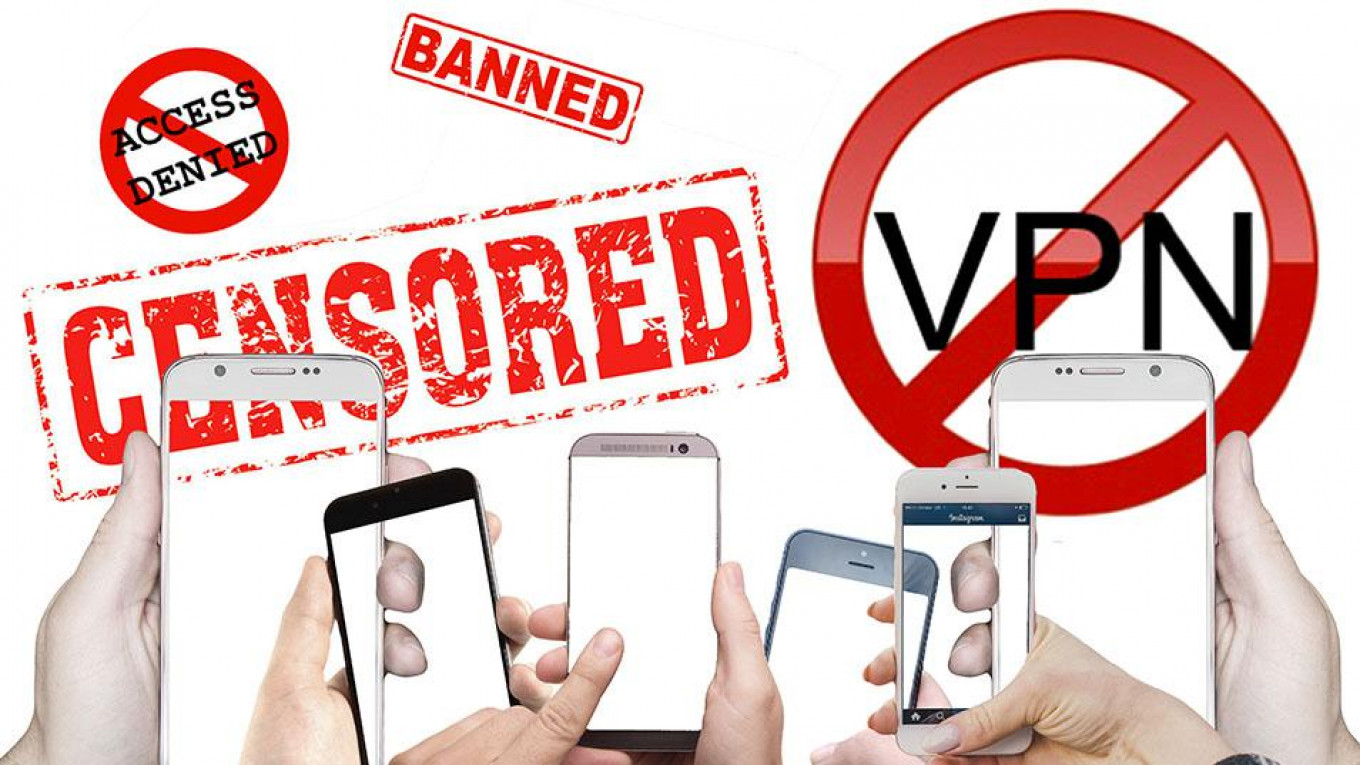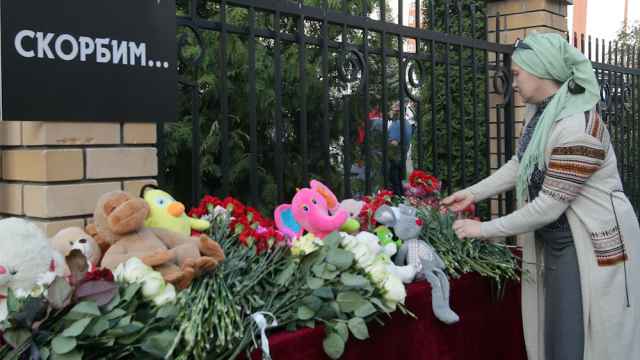For more than five years, the Kremlin has tried to find a way to bring the internet in Russia under its control.
Now under mounting pressure to bring online activity to heel ahead of presidential elections in March, the authorities have developed a distinctive strategy that sets the country apart from China or Iran.
The approach rests on two pillars. The first is the use of intimidation: The Kremlin has always been behind the curve in terms of its tech, but it has never lacked the resources for selective repression. Second, rather than targeting individual users, it is going after tech and internet companies. They are easiest to scare because they have the most to lose.
The most scandalous legislation of 2017, banning VPN services which facilitate anonymous browsing, confirmed this strategy. The bill involves internet service providers in the enforcement system by requiring providers to check the state censor Roskomnadzor’s blacklist of uncooperative VPNs on a daily basis and take immediate action.
As always, the results have been mixed. Although Roskomnadzor reported that some VPN services have complied with the law, the most popular VPN services have openly defied the legislation.
Meanwhile, 2017 saw a new wave of protests in 80 cities, organized primarily on the VKontakte social network. It was also the year during which a new generation of political vloggers produced content that went viral on YouTube. Neither of these phenomena could have been predicted.
The fact that the Russian authorities were caught off guard on the eve of a presidential election has added more fuel to the Kremlin’s already high level of internet paranoia. Drastic action on the Kremlin’s part is to be expected — it’s an election year, after all. The only question is: What will it do?
The Kremlin has neither the time nor the resources to introduce an effective system of nationwide mass online surveillance before the elections — it wouldn’t be able to overhaul the infrastructure of the Russian internet in years, never mind a few months.
Imitating the Chinese approach, with its massive and costly system of censorship combined with Chinese technology, does not seem feasible, not least because of the Russian secret services’ own reservations toward opening up Russian telecommunications to Beijing and possible Chinese surveillance.
For two years, global internet giants Google, Twitter and Facebook have been tangled in a peculiar dance with Roskomnadzor, and its tone has long become irritatingly monotonous: Roskomnadzor issues a warning forcing the three companies to move their servers to Russia, and the companies send another high-placed official to convey another vaguely formulated promise with no purpose other than to calm down the Kremlin and buy some time.
Time, though, could be running out. A ban on one of the companies — even if it is temporary — has looked like an attractive option for the Kremlin for years, and it will become all the more attractive as the authorities become more desperate in 2018.
The second option, to send more people to jail for their online posts, is also entirely within the capabilities of the Russian secret services. This could become even more tempting as the Kremlin becomes increasingly aware that the most sensitive content distributed on the Russian internet is generated in Russia itself, not in Washington.
The most depressing thing about all of this is that while Russia’s censors apparently need Putin’s personal permission to go after global platforms — at least some sources have pointed to the president to explain the absence of such a ban until now — repression could be intensified at the drop of a hat.
The technology and resources for that are already in place.
Andrei Soldatov is an independent journalist and co-author of “The Red Web.” The views and opinions expressed in opinion pieces do not necessarily reflect the position of The Moscow Times.
This article first appeared in our special “Russia in 2018” print edition. For more in the series, click here.
A Message from The Moscow Times:
Dear readers,
We are facing unprecedented challenges. Russia's Prosecutor General's Office has designated The Moscow Times as an "undesirable" organization, criminalizing our work and putting our staff at risk of prosecution. This follows our earlier unjust labeling as a "foreign agent."
These actions are direct attempts to silence independent journalism in Russia. The authorities claim our work "discredits the decisions of the Russian leadership." We see things differently: we strive to provide accurate, unbiased reporting on Russia.
We, the journalists of The Moscow Times, refuse to be silenced. But to continue our work, we need your help.
Your support, no matter how small, makes a world of difference. If you can, please support us monthly starting from just $2. It's quick to set up, and every contribution makes a significant impact.
By supporting The Moscow Times, you're defending open, independent journalism in the face of repression. Thank you for standing with us.
Remind me later.








